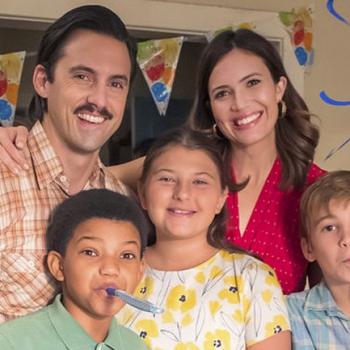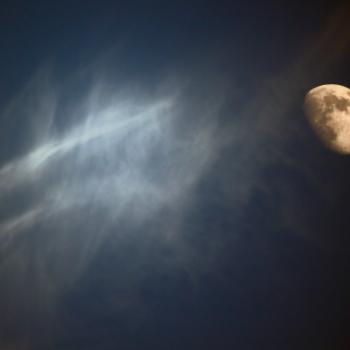 I didn’t get many dates in high school. At the time, I thought I was too tall or too plain or too K-Mart in my style.
I didn’t get many dates in high school. At the time, I thought I was too tall or too plain or too K-Mart in my style.
Now I know I was just weird.
I fell in love with a surfer boy I saw—but didn’t talk to—at a party one Saturday night. By Monday, I had written a letter declaring my infatuation and handed it to one of his buddies at lunch. But we didn’t speak once: not about the letter, or about anything at all. I just lingered by his classrooms, his house, and the surf shop, hoping to catch a glimpse of his sandy blond hair. I had no plans for what I would do if we actually came face to face.
The surfer boy was not my only victim. A few basketball players fell into my intricate, silent webs of attention, including the one whose jersey number I chose for my own when I made the girls’ team.
My senior year of high school, my pastor told me his nephew Joe would be visiting from Texas. “I’d like the two of you to go out,” he said. “Get dressed up. Show him around. It’s his first time in California.”
He caught the look in my eye. “Don’t worry. He’s about your height.”
Since I wanted to cut to the chase of acquiring a boyfriend without putting in the work of communicating like a human, a blind date should have been perfect. However, something unsettled me about this request.
I was not raised in a feminist environment. My dad would snap his fingers for salt, and Mom would scurry over like Edith Bunker. She told me stories about her boss grabbing her breasts when she sat at her drafting table in the 60s. (“What could you do?”) But still, this date, which could not realistically turn into any sort of relationship, stirred something. Why couldn’t the pastor show his nephew around himself? Or one of the guys from youth group? Did Joe require a female accessory by his side?
But of course I complied. It was a hymn-singing, half-donuts-on-napkins church where you smiled through your discomfort and misery. Joe would pick me up that Friday night.
I spent the week nervous about this boy’s expectations. How was I, someone who apparently couldn’t talk to boys, going to give him the California time of his life? Was he going to try to kiss me, an awkward experience I likened to a goldfish struggling in my mouth for survival?
A phone call from the pastor interrupted my worries a few hours before the date.
“Tania, I’ve done something very wrong. I hope you can forgive me.”
“What?”
“There’s something I haven’t told you about Joe.”
My stomach lurched. Was he actually fourteen? A smoker? Or worse, five-foot-two?
“He’s missing an ear.”
“An ear?”
“He was in an accident a few months ago. Very self-conscious. I’m sorry I didn’t tell you.”
I assured him this wasn’t an issue and hung up, fuming. Now this man thought I was so delicate, I couldn’t handle asymmetry. And now I hated Joe for dumping his insecurities on me, as if I didn’t already have enough, and for taking up my valuable Saturday night I could have spent watching Night Court and stringing beads.
He picked me up in his uncle’s Buick. He had Richie Cunningham hair, and, sure enough, a red scar and small flap of skin on the side of his head where an ear used to be. I tried not to look like I was trying not to look.
He lived in Texas; he played baseball. We settled that before reaching the end of the block. I talked about orchestra for three minutes. Then we fell silent. We headed toward Seal Beach to eat dinner at Ruby’s, a forties-style, quintessential first-date diner at the end of the pier.
Big Band songs blared mercilessly as the ocean shook the restaurant. We made small talk about Betty Boop. But he mostly stared past me toward the window as I picked at my curly fries.
After a mostly silent forty-five minutes, we made the embarrassing trek back along the pier amidst couples holding hands and making out on benches.
“I want to stop,” he said. “I’ve never really seen the ocean.”
He leaned against the railing, closed his eyes, and breathed. The breeze riffled just a few of his slicked-back hairs.
I was seventeen, mostly incapable of thinking about the future, but for a moment, I saw the wrinkled eyes of a forty-year-old man gazing at the water. I saw his office name tag and children running behind him. And I saw that little flap of skin that would prompt the story about the car that—I don’t know—broadsided him and threw him in a ditch? The same story he would tell to every new friend, year after year after year.
Perhaps this is why that night, far from Texas and hospital rooms, he wanted nothing more but to drift on the salt air, lap among the barnacles and floating lights. What could he do?
Victor Hugo writes that “Great perils have this beauty, that they bring to light the fraternity of strangers.” Adolescence is perilous, an absolute mess of fear and desire. If I’d been sensitive enough to invite Joe to talk about the accident, perhaps I would have brought him some peace and compassion. Or maybe all he needed was this quiet night on the creaking pier amidst old men casting their fishing lines.
I would eventually learn to respect men by talking to them rather than turning them into my own objects of obsession, which had become my safe way of dehumanizing them. I would leave my fraught upbringing behind long enough to share my vulnerabilities and joys.
Or, in the case of a boy like Joe, pull my coat around my fancy dress, look out at the waves, and listen.
Tania Runyan is the author of the poetry collections Second Sky (Cascade Poiema Series), A Thousand Vessels, Simple Weight, and Delicious Air, which was awarded Book of the Year by the Conference on Christianity and Literature in 2007. Her book How to Read a Poem, an instructional guide based on Billy Collins’s “Introduction to Poetry,” was recently released by T.S. Poetry Press. Her poems have appeared in many publications, including Poetry, Image, Books & Culture, Harvard Divinity Bulletin, The Christian Century, Atlanta Review, Indiana Review, and the anthology In a Fine Frenzy: Poets Respond to Shakespeare. Tania was awarded an NEA Literature Fellowship in 2011. She tutors high school students and edits for Every Day Poems and Relief.















